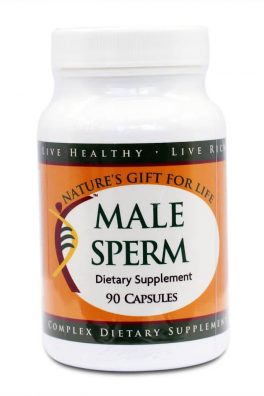Chronic Fatigue
DOCTORS RECOMMENDED PRODUCTS
-
Chronic Fatigue
Steaz Berry Energy Drink (Chronic Fatigue )
0 out of 5(0)
Benefits of this product for Chronic Fatigue
- A 100 % natural energy drink and an excellent energy booster.
- Eliminates physical and psychological fatigue and muscle pain
- Strengthens the heart and cardiovascular system
- All natural – Nothing artificial – No preservatives!
>>>Read More
SKU: n/a - A 100 % natural energy drink and an excellent energy booster.
Chronic fatigue syndrome (CFS) is a complex illness affecting the brain and multiple body systems. It is defined by constant disabling fatigue and exhaustion that comes on suddenly and lasts for more than six months. This fatigue is not relieved by bed rest and causes daily activity levels to decrease
drastically. CFS produces a complex array of symptoms in addition to the extreme fatigue that is its central feature, which often resembles the flu or other viral infection.
Symptoms include swollen tender lymph nodes, slight fever, recurring sore throat, muscle weakness, impaired concentration, anxiety, depression, headache, muscle pain, joint pain with no swelling or redness, substantial impairment of short or long-term memory, poor sleep, and increased fatigue and malaise upon exercising that lasts at least 24 hours.
People suffering from CFS also commonly suffer from chills, night sweats, fever, rashes, irregular heartbeat or palpitations, bloating, nausea, diarrhea, brain fogginess, dizziness, shortness of breath, chronic cough, visual disturbances, jaw pain, and allergies ,or sensitivities to foods, alcohol, or chemicals. This is, of course, problematic for many physicians since these symptoms mimic the flu. In the case of chronic fatigue, however, these symptoms are ongoing with no recovery after several months.
More prevalent in women than men, CFS seems to primarily affect adults between the ages of 20 and 50. To date there is no consensus among the medical community as to the underlying cause of CFS, although a number of theories have been put forward. It seems to arise out of the inability of the body to cope with the stresses of life. Multiple triggers may be involved, such as viral infection, stress nutrient deficiency, toxins, and hormone imbalances.
It has been speculated that the underlying cause of many cases of chronic fatigue syndrome may be a chronic viral infection. CFS patients are therefore advised to have their physician arrange for them to undergo medical testing for Epstein-Barr virus and Cytomegalo virus antibody activity. If either of these tests turns out to be positive, the patient needs to adopt the treatment protocol for the eradication of the relevant virus. It has been speculated that another underlying cause of CFS may be undiagnosed hypothyroidism. CFS patients are often advised to be tested for hypothyroidism. Measurement of free T3(triiodothyronine) and T4 (thyroxine) levels is regarded by many progressive health professionals as the most accurate means of diagnosing hypothyroidism. Since there is no single cause for CFS, it is important to rule out other known causes for fatigue before settling on a diagnosis.
Healthy Things You Can Do
• Eat a well balanced diet, increasing fiber, fresh vegetables, and legumes.
• Add acidophilus to your diet.
• Consume at least 64 ounces of water throughout the day.
• Choose complex carbohydrates that have a low glycemic index such as brown rice, raw apples, and winter squash. Avoid all simple or refined carbohydrates (sugar, white bread, pasta, cookies, cakes, crackers, etc.) and all foods containing refined sugar or synthetic sugar-substitutes such as aspartame. Choose a natural sweetener like NG4L Slim Sweet Sweetener. Limit intake of fruits that have a ,high glycemic index such as apricots, raisins, banana, papaya, and mango
• Get plenty of rest, and make time for daily exercise. Gradually increase exercise, even if you must begin with only a few minutes at a time.
• Do not smoke, and avoid second-hand smoke.
• Consult a healthcare professional who specializes in treating CFS. Get stress-reduction counseling from a qualified counselor with CFS experience.
• Eat foods that are rich in omega-3 essential fatty acids, such as wild-caught salmon, minimal-mercury albacore tuna, fish oil, avocado, and sprouted walnuts. Add ground flax meal to your diet, which contains omega-3 essential fatty acids and promotes digestive regularity.
• Avoid shellfish, fried foods, fermented foods such as cheese and wine, saturated fats, dairy products, gluten-containing grains, processed food, alcohol, and stimulants, such as coffee, tea, and carbonated soft drinks.
• Add saturated fats to your diet such as extra virgin organic coconut oil.
• Add nutrient-dense and unprocessed foods such as sprouted nuts and seeds to your diet. Eat organic cage-free eggs.
• Limit the following:
– Bottom crawlers such as oysters, clams, and lobster and deep-sea fish such as tuna, mackerel, and swordfish
– may contain toxic levels of mercury
– Farm-raised fish – often contain PCBs and not enough omega-3 essential fattyacids
– Yeast and wheat products (breads, crackers, pasta, etc.)
– Contain gluten
– Processed meats such as hot dogs, lunch meats, and bacon – contain sodium nitrite
– Monosodium glutamate (MSG) – in many foods as a flavor enhancer
– Processed foods, deep-fried food, fast food, and junk food – contain unhealthy hydrogenated and partially hydrogenated oils (trans fats)
People suffering from CFS also commonly suffer from chills, night sweats, fever, rashes, irregular heartbeat or palpitations, bloating, nausea, diarrhea, brain fogginess, dizziness, shortness of breath, chronic cough, visual disturbances, jaw pain, and allergies ,or sensitivities to foods, alcohol, or chemicals. This is, of course, problematic for many physicians since these symptoms mimic the flu. In the case of chronic fatigue, however, these symptoms are ongoing with no recovery after several months.
More prevalent in women than men, CFS seems to primarily affect adults between the ages of 20 and 50. To date there is no consensus among the medical community as to the underlying cause of CFS, although a number of theories have been put forward. It seems to arise out of the inability of the body to cope with the stresses of life. Multiple triggers may be involved, such as viral infection, stress nutrient deficiency, toxins, and hormone imbalances.
It has been speculated that the underlying cause of many cases of chronic fatigue syndrome may be a chronic viral infection. CFS patients are therefore advised to have their physician arrange for them to undergo medical testing for Epstein-Barr virus and Cytomegalo virus antibody activity. If either of these tests turns out to be positive, the patient needs to adopt the treatment protocol for the eradication of the relevant virus. It has been speculated that another underlying cause of CFS may be undiagnosed hypothyroidism. CFS patients are often advised to be tested for hypothyroidism. Measurement of free T3(triiodothyronine) and T4 (thyroxine) levels is regarded by many progressive health professionals as the most accurate means of diagnosing hypothyroidism. Since there is no single cause for CFS, it is important to rule out other known causes for fatigue before settling on a diagnosis.
Healthy Things You Can Do
• Eat a well balanced diet, increasing fiber, fresh vegetables, and legumes.
• Add acidophilus to your diet.
• Consume at least 64 ounces of water throughout the day.
• Choose complex carbohydrates that have a low glycemic index such as brown rice, raw apples, and winter squash. Avoid all simple or refined carbohydrates (sugar, white bread, pasta, cookies, cakes, crackers, etc.) and all foods containing refined sugar or synthetic sugar-substitutes such as aspartame. Choose a natural sweetener like NG4L Slim Sweet Sweetener. Limit intake of fruits that have a ,high glycemic index such as apricots, raisins, banana, papaya, and mango
• Get plenty of rest, and make time for daily exercise. Gradually increase exercise, even if you must begin with only a few minutes at a time.
• Do not smoke, and avoid second-hand smoke.
• Consult a healthcare professional who specializes in treating CFS. Get stress-reduction counseling from a qualified counselor with CFS experience.
• Eat foods that are rich in omega-3 essential fatty acids, such as wild-caught salmon, minimal-mercury albacore tuna, fish oil, avocado, and sprouted walnuts. Add ground flax meal to your diet, which contains omega-3 essential fatty acids and promotes digestive regularity.
• Avoid shellfish, fried foods, fermented foods such as cheese and wine, saturated fats, dairy products, gluten-containing grains, processed food, alcohol, and stimulants, such as coffee, tea, and carbonated soft drinks.
• Add saturated fats to your diet such as extra virgin organic coconut oil.
• Add nutrient-dense and unprocessed foods such as sprouted nuts and seeds to your diet. Eat organic cage-free eggs.
• Limit the following:
– Bottom crawlers such as oysters, clams, and lobster and deep-sea fish such as tuna, mackerel, and swordfish
– may contain toxic levels of mercury
– Farm-raised fish – often contain PCBs and not enough omega-3 essential fattyacids
– Yeast and wheat products (breads, crackers, pasta, etc.)
– Contain gluten
– Processed meats such as hot dogs, lunch meats, and bacon – contain sodium nitrite
– Monosodium glutamate (MSG) – in many foods as a flavor enhancer
– Processed foods, deep-fried food, fast food, and junk food – contain unhealthy hydrogenated and partially hydrogenated oils (trans fats)



